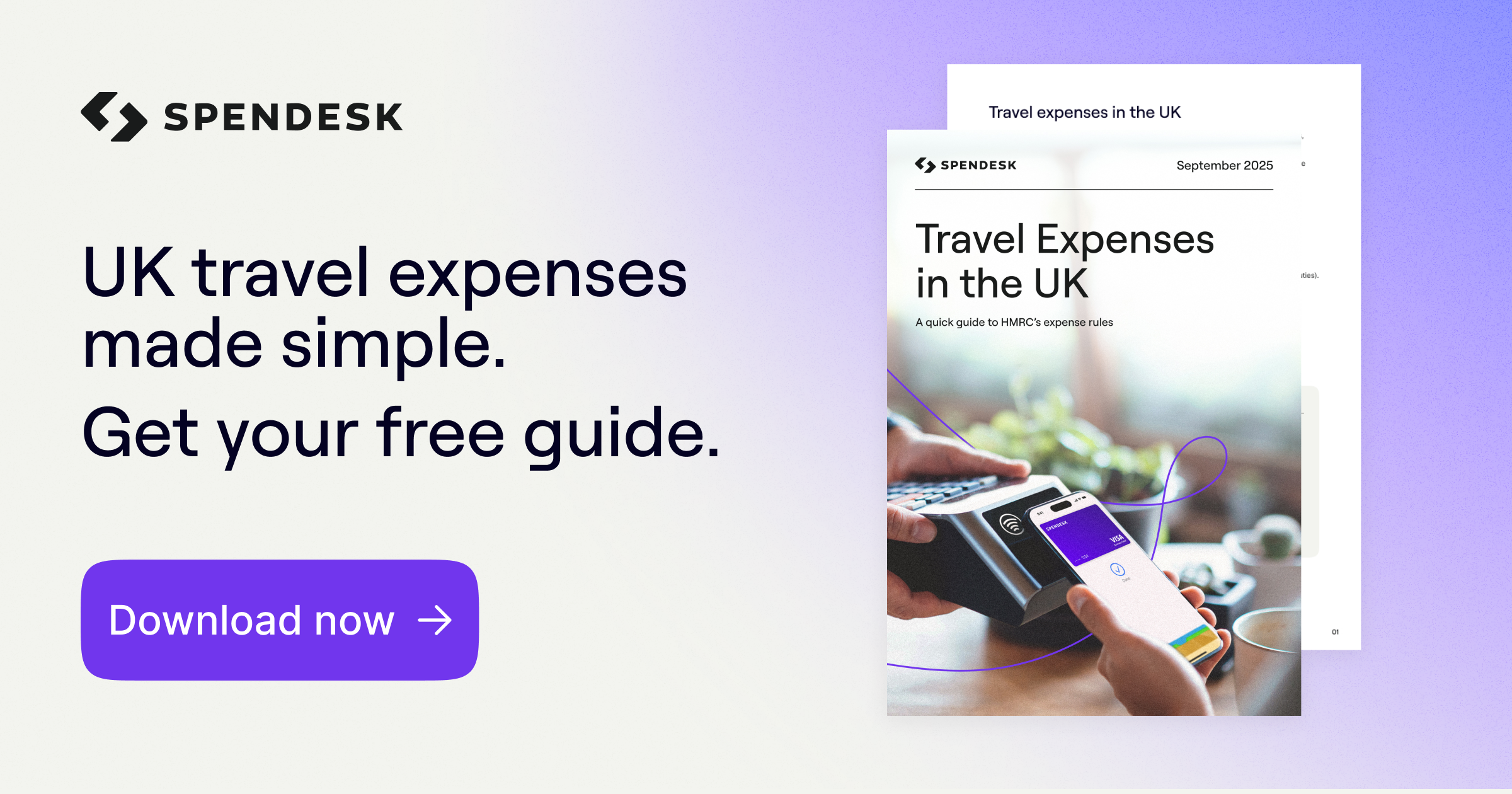)
Company cars give your team members an easy way to travel for work. Whether they use them on a short term basis or have had "their own" company car for years, employees can get where they need to be to help the business grow.
But things can get a little tricky when it's time to evaluate travel expenses. Companies should, in theory, reimburse employees' fuel costs for business trips.
But it's not as simple as merely rubber-stamping every petrol payment in full. The government has guidelines in place for what can be reimbursed tax-free.
And the goal of this post is to help you easily understand these. Let us begin.
What are HMRC advisory fuel rates used for?
In order to understand advisory fuel rates, there are a few factors you need to know:
Fuel costs are a business expense, assuming the journey is a work trip
Companies usually reimburse employees for business expenses
Business expenses are not subject to tax or Class 1A National Insurance fees, as long as it’s clear that there was no profit made from the expense
Therefore, companies can reduce their tax and insurance bills significantly when they recognise and reimburse fuel expenses.
But because petrol prices and fuel efficiency vary, HMRC has standardised the amount which employers can reimburse free from tax. When an employee purchases petrol for a work trip, they can be paid back by the company at the rate specified by HMRC.
Why have advisory fuel rates?
The short answer is: efficiency. It would be burdensome to update and enforce different fuel rates for every make and model of car in use in Britain. And it would be equally burdensome for HMRC to check that every company car was in fact the make and model specified in tax filings.
Instead, the tax office has one set of standard rates that businesses can use when paying and being repaid by employees for travel in a company car.
When do HMRC fuel rates apply?
HMRC’s business fuel rates only apply in two specific instances:
When reimbursing employees for work travel in their company cars
When requiring employees to repay the fuel cost of private travel
Let’s take a closer look at each of these examples.
1. Reimbursements for work travel
Companies can reimburse employees for fuel costs incurred during work travel, up to the amounts allowed by HMRC (see below).
Your company may also choose to reimburse employees at a lower rate than this, notably if your company cars are more efficient. It is also possible to reimburse at a higher rate, but you’ll need to show that the cost of business travel was higher - for example, if your company cars are less fuel-efficient.
Note: If you reimburse at a higher rate and can’t show that this was necessary, the excess will be treated as taxable profit and will be subject to tax and national insurance.
2. Employees repaying the cost of private travel in company cars
From time to time, employees will use their company car for personal trips. In these instances, they’ll need to repay the company at a rate equal to or higher than the advisory fuel rate.
As before, it’s possible to use another rate if you can show that the employee covered the full cost of their private trip.
How are the fuel rates calculated?
The good news is, you don’t really have to worry about this. HMRC provides the rates and you just have to follow them.
But it’s still interesting, so briefly:
HMRC starts with the mean miles per gallon (MPG), taken from manufacturers’ information and then weighted by the amount of specific models sold to businesses.
It then uses applied MPG, which is 15% lower than the mean to account for real driving conditions and the fact that many cars achieve lower fuel efficiency.
It takes the fuel price from the Department for Business, Energy, and Industrial Strategy, and the LPG price from the Automobile Association website.
HMRC then uses the applied MPG and current petrol and LPG prices to calculate its advisory fuel rates.
Note: Advisory fuel rates are typically updated each quarter.
See the data used for the most recent advisory fuel rates.
Latest HMRC advisory fuel rates
Fuel prices rose dramatically in 2022 in the UK and around the world. As such, HMRC's rate also increased substantially.
Below are listed the most recent advisory fuel rates, applicable from 1 December 2023.
Important note: The Advisory Electricity Rate is 9 pence per mile. This rate applies to all fully electric cars.
Hybrid cars can be treated as either petrol or diesel.
Petrol cars
Diesel cars
What about employees using their own personal cars?
This situation is governed by a different HMRC scheme know as mileage allowance payments. These payments vary depending on the type of vehicle (car or van, motorcycle, or bicycle) and the distance travelled in one year.
The amount of these payments is as follows:
We've written a comprehensive guide to employees using personal cars for business travel. Read it here.
Company cars should be an asset, not a bore
A fleet of company vehicles is often the easiest way to let your team get to meetings, onsite visits, and other important appointments. That is, unless the administration associated with them becomes too heavy.
Hopefully this article has helped to clarify the rules around HMRC's advisory fuel rates. You should now know exactly how much to reimburse travelling team members, and how much they should pay you back for their private trips in company cars.
For more information about HMRC's rules and guidelines, take a look at these other recent articles:



)
)
)
)
)